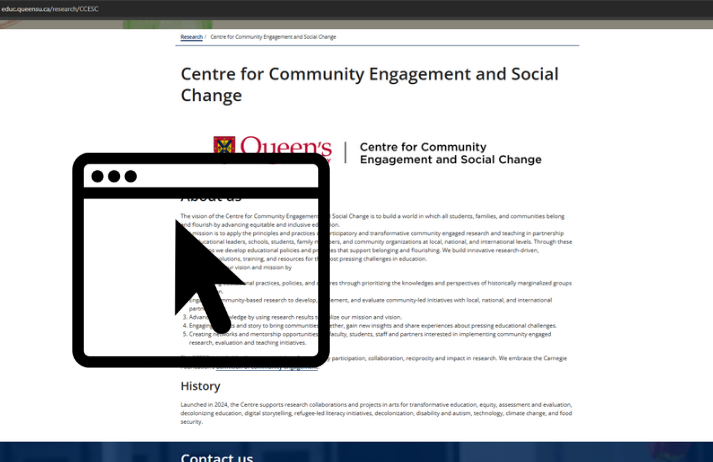Centre for Community Engagement and Social Change Year End Report 2024-2025
Introduction to the goal
The communication plan seeks to create awareness and build support for the Centre for Community Engagement and Social Change. Led by Executive Director, Academic Operations & Communications Becca Carnevale, and with the strategic direction of Dr. Patty Douglas, numerous staff and students have been involved in the creation of the CCESC website, social media, research stories and messaging to share CCESC goals, events and grant opportunities.
Bringing the goals to life
The objective is to position the Centre as a key contributor to the Faculty’s and University’s strategic priorities around community engagement and the UN SDGs.

Storytelling Mobilizing Social Change
Storytelling is at the heart of CCESC. A scoping review is underway on storytelling as knowledge mobilization, pedagogy, methodology and knowledge, led by Patty Douglas with research assistant Haley Clark and project manager Jennifer Thompson. It will inform CCESC’s community engaged knowledge mobilization strategy.
CCESC Website
This year has been focused on soft-launching an accessible CCESC website to promote our vision and mission and to leverage digital platforms and story to promote events.
CCESC Co-Research on Neurodiversity Affirming Marketing
Dr. Patty Douglas and Rebecca Carnavale are partnering in an initiative with Transformative Consumer Research to bring neuro-diversity affirming digital marketing to the CCESC and faculty.
CCESC Newsletter
The first issue of the CCESC Newsletter was launched in December 2024. It is the first in a series of regular updates on centre events, strategic goals, and invitations for input on future directions and initiatives. Our next issue is June 2025.
CCESC Promotional Video
Rachel Su, CCESC’s Research Promotion Coordinator, produced and directed a promotional video exploring the significance of community engagement to the Queen’s Community.
Future directions for Goal 5
- Continuing and expanding CCESC communications about Centre activities, including website development, social media engagement, newsletter, launching the CCESC blog and other forms of communication as identified by the CAB.
- Creating greater opportunities for scholarship, including publications in open access journals as well as arts based and narrative forms of engagement to mobilize and disseminate knowledge related to Centre activities and initiatives. This may include the development of resources for educators and other educational parties.
- Partnering with Marketing and Communications at the Faculty of Education to jointly host a renowned guest speaker related to community engagement and social change.